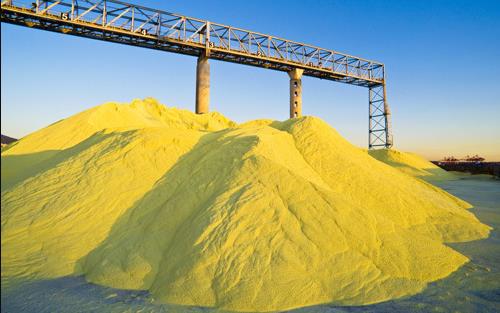We all know that there have been many accidents in the process of storage and transportation of industrial sulfur, and the hazards of the accidents are relatively large, and they are also harmful to the environment. The sulfur powder used in the industry often has relatively high requirements on the fineness of the sulfur powder, but the safety of the powdered sulfur during storage and transportation is reduced, and the corrosiveness of the equipment is improved.
During transportation and processing, sulfur dust floats in the air, which not only causes the loss of sulfur, but also negatively affects the surrounding environment. At the same wind speed, the loss of powdered sulfur is significantly greater than that of solid shaped sulfur. Once floating in the air, dust particles can spread over great distances. Generally, the fine powder sulfur content in lump powder sulfur can reach 10% of the total sulfur content, while the fine powder content of high-quality solid molding sulfur is less than 1% even after shipping. Also, during processing. Large pieces of sulphur are easily broken, and as the crushing progresses, fines are easily generated along the crushing edge, resulting in an increase in the particle content. The high-quality molding sulfur is uniform in size and has less sulfur dust.
The smaller the solid sulfur particles, the larger the area exposed to the air, and the specific surface area determines the rate of sulfur oxidation to sulfuric acid. The results show that the oxidation rate is linearly related to the sulfur surface area. During the sulfur storage process, the greater the amount of powdered sulfur added, the greater the amount of acidification, which will increase the corrosion of equipment. To neutralize the acid, buying lime usually adds an extra cost.
In the shipping or other shipping of industrial sulphur powder, in addition to the above disadvantages, lumpy powdered sulphur contains a large amount of fine powder, which will cause fire and explosion. This doesn’t happen often, but when it does, it can be very dangerous. The presence of these fine powder particles will affect its minimum explosion limit. What is more noteworthy is that the microcrystalline fragments formed by the bulk sulfur obtained by crushing are more likely to catch fire and explode than the uniform size particles obtained by grinding.

